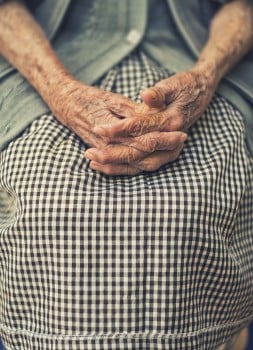How to Grieve a Grandparent
For many people, the loss of a grandparent is the first real death that hits in a big way. Whether you lose a grandparent as a child, a teenager, a young adult, or even an older adult, chances are good that this is your first real experience with death.
Because it is often such a new experience, the loss of a grandparent can be difficult to bear. Not only will you struggle with your own grief, but you may also witness your parents, aunts, and uncles in a more vulnerable position than you are used to. This brings its own kind of emotional burden, especially if you are unsure how to support those who are hurting.
Defining Your Relationship with Your Grandparent
Every family is different, which means your relationship with your grandmother and/or grandfather is unique. Perhaps they played a major role in raising you, even stepping in to fill in the role of mother or father. Maybe they were a safe place to land, the one person who always had cookies and hugs waiting. You might have even been only slightly acquainted, which means their passing may carry more of a what-might-have-been burden than actual grief.
Any and all of these relationships—and their accompanying feelings—are worth consideration. Even when you did not know a grandparent very well, they may have been the glue that held the family together, and their loss will represent a major shift in your family dynamics.
In fact, the loss of a patriarch or matriarch of a family usually turns grief into a family affair—which can either mean it brings everyone closer together or makes divisions worse. Your relatives may band together to share stories and ensure the traditions live on, or they may use the death as a reason to separate all the way. In these instances, grief may have less to do with the loss of a grandparent and more to do with the loss of a family unit.
Dealing with Your Grief
In today’s society, the loss of a grandparent is often viewed as a minor occurrence. Not only is death more expected in the elderly, but only when the death is very close to you—an immediate family member, a spouse, a child, or a best friend—do people extend traditional condolences. In fact, you may find that your work will not grant you time off, and bereavement services (such as reduced airfare) are unavailable.
The healing process will also vary depending on your situation and your relationship. Some of the more common ways to deal with the loss of a grandparent include:
- Taking up a hobby of your grandparent’s
- Keeping up old family traditions, especially around the holidays
- Spending time researching genealogy and your grandparent’s life
- Bonding with other family members
- Repurposing a grandparent’s belongings
- Seeing a grief counselor
The most important thing to remember is that no one gets to decide how much grief you are allowed to feel. Other family members, who may feel that their closer relationship warrants a greater manifestation of sadness, should not dictate your emotions. Everyone has their own unique grief timeline.




